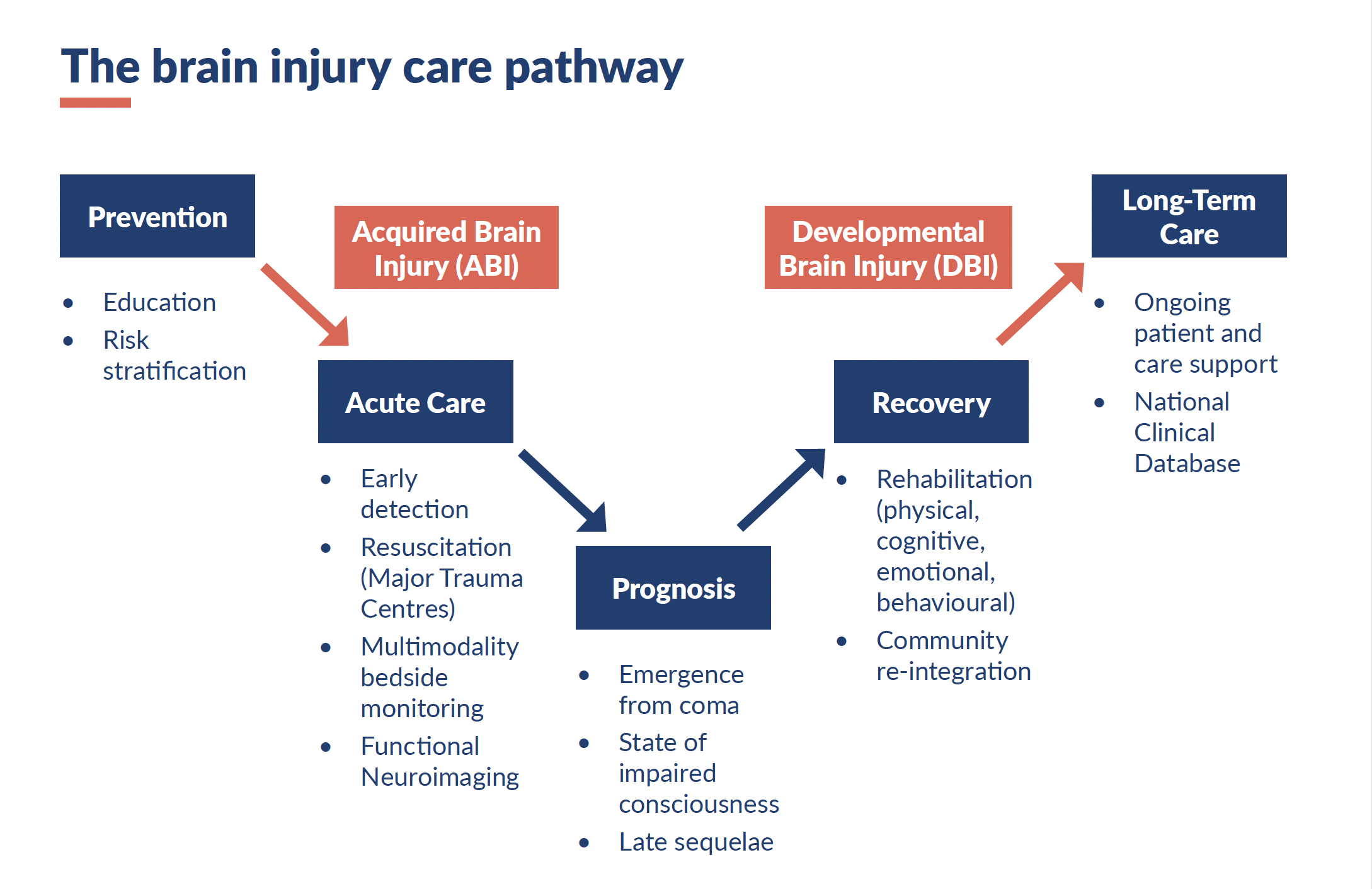VISION
Acquired brain injury (ABI) refers to a brain injury of any cause after birth. This includes traumatic injuries such as following a road traffic accident or a fall, or non-traumatic causes such as stroke, tumours and infection (Briefing on Acquired Brain Injury in the House of Commons Chamber on Monday 18 June, Number CDP 2018-0145 , 15 June 2018).
The World Health Organization estimates that brain injury, including traumatic brain injury, (TBI), is and will remain the most important cause of neurodisability in the coming years, with physical, cognitive and mental consequences, that may persist for many months or years after injury despite many advances.
Brain injury affects people of all ages leading to great suffering to victims and relatives with huge economic consequences for families, the NHS and society.
Brain injury can cause a wide range of effects such as:
- Physical impairment and speech problems
- Cognitive effects such as impaired reasoning and memory
- Behavioural and emotional effects which can lead to depression, anxiety, anger and personality disorders

Families may be left without a breadwinner and marriages put under enormous strain. Many people are in prison because a childhood TBI, many of which are preventable, has left them unable to control their behaviour.
TBI represents a global burden of direct and indirect cost that exceeds $400 billion (0.5% of global gross product). 10% of all babies in the UK spend time in special care neonatal units but their increased survival may be preceded by lack of oxygen supply to the brain leading to long-term neurological sequelae including learning difficulties, cerebral palsy and epilepsy.
Now is the time to exploit recent advances in technologies that impact on brain injury from prevention through acute management and rehabilitation to reintegration into the community.
The NIHR Brain Injury MedTech Co-operative is a Cambridge based UK wide centre of expertise in brain injury that builds the teams of patients, carers, inventors, industry and clinical researchers to develop and translate solutions into useful technologies.
The aims of the Brain Injury MIC with respect to the development of new medical devices, healthcare technologies and technically dependent interventions in brain injury are to:
- Provide a focus to catalyse NHS ‘pull’ into practice both nationally and internationally
- Build UK capacity for developing and testing new concepts
- Act as an international knowledge centre and advocate for the identification and development of new solutions
